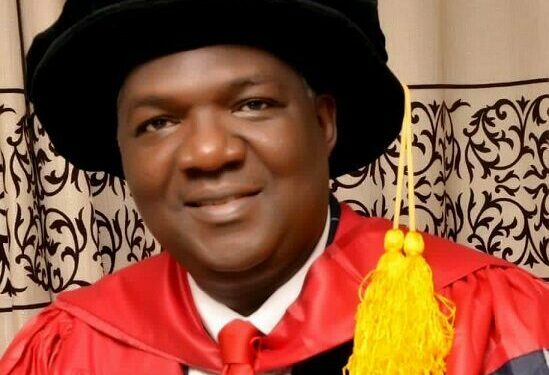The Vice-Chancellor of Olabisi Onabanjo University (OOU), Ago-Iwoye, Ogun State, Prof. Ayodeji Agboola, has warned that the increasing wave of Nigerian emigration abroad, otherwise known as japa syndrome, poses a severe challenge to the nation’s socio-economic development.
Prof Agboola disclosed this while receiving a delegation of the Nigerian Anthropological and Sociological Practitioners Association (NASA) in his office. The delegation was in the institution for their 29th Annual Conference. Prof. Agboola noted that the repercussions of ‘japa’ might be grave for Nigeria in the next 20 years.
The Vice-Chancellor challenged Nigerian sociologists and academics to lead strategic efforts to reverse the exodus of youths and other citizens from the country.
While declaring that the solutions to Nigeria’s challenges lie not only in government policies but also in the active engagement of the academic community, civil society, and others who seek a better future, Prof. Agboola called on the educational community to devise workable solutions to the myriad of socio-economic and political problems facing the nation.
The conference with the theme, “Rebuilding Nigeria: Approach to Effective Governance and Social Transformation,” was organised in conjunction with the Oba (Dr) Sikiru Kayode Adetona School of Governance Studies.
He said, “We are the only ones that can solve our problem; the white people (foreigners) will not come back here and solve it for us, no matter how they love us. Let’s stop deceiving ourselves. They won’t take our best brains away if they love you.”
“I think this is what the eggheads need to sit down and critically look at. Let us forget about these politicians here and there who are leading us today. Given all these problems, we can come together and find a way as academics.”
Delivering his address at the conference, the Vice-Chancellor expressed optimism that a more prosperous, just and harmonious Nigeria can be built.
According to him, academics are vital in rebuilding the country and must contribute to the intellectual and practical frameworks that will drive its transformation.
Prof. Agboola added, “As we look toward rebuilding Nigeria, we must engage in a candid dialogue about how to reshape our governance systems, reform our institutions, and transform our society into one where justice, equity, and opportunity are not just ideals, but realities for all citizens.
“Our approach to effective governance and social transformation must be holistic, inclusive, and sustainable. It must consider Nigeria’s people’s diversity, recognising that our strength lies in our differences—our ethnic, cultural and religious diversity. At the same time, it must prioritise unity, stability and the creation of opportunities that are accessible to all.”
In her speech, Prof. Yusuf said NASA conferences have consistently proven invaluable platforms for scholarly exchange, networking, and professional development. She added that they provide opportunities for researchers to present their work, engage in stimulating discussions, and forge lasting collaborations.
The NASA President thanked OOU for graciously accepting the invitation to host this year’s conference, saying the University’s unwavering support and commitment to academic excellence made the event possible.
Earlier in his welcome address, the Chairman of the Local Organising Committee, Prof. Obatunde Bright Adetola, said the event was aimed at engaging in discussions that could suggest possibilities for ending the crisis of development in Nigeria.
The conference’s high points included conferring the association’s fellowship awards on Prof Adetola and ten other distinguished Nigerians and a roundtable discussion to address some fundamental challenges confronting sociologists’ teaching and research activities.
The other awardees included Prof. John Oyefara Lekan, HE Manassah Daniel Jatau, Dr David Olom Nkpe, Dr Martha Uchenna Ogbuke, Hon. Adamu Inuwa Ibrahim, Senator Stephen Odey, Commander Olusegun Ogungbemide, Mr Kazeem Abiodun, Mrs Bolanle Oniyitan and Prof. Oka Martin Obolo.



